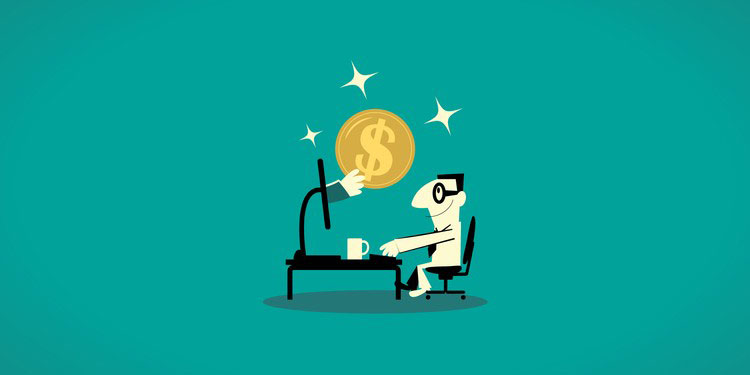Despite being unpleasant, credit cards demand monthly payments. Most importantly, delaying payment may incur unanticipated expenses.
If you don't pay your credit card bills on time, it may hurt your credit score, lead to higher interest rates, and incur late penalties. There are ways to keep track of your expenses and lessen the impact of late payments, so there's no need to stress.
Late Payments and Your Credit Score
Your credit score remains unaffected if your payment is a few days late. However, a delay beyond 30 days can significantly reduce your score. This is because credit card companies report payments overdue by 30 days or more to credit bureaus. These bureaus then reflect this in your credit report, which influences your credit score negatively. Since payment history is a major component of your credit score (35%), it's crucial to avoid late payments as much as possible.
The Cost of Late Fees
The Consumer Protection Finance Bureau has established maximum limits for credit card late fee charged by credit card companies. These are:
- A maximum of $28 for the first late payment.
- Up to $39 for additional late payments in the following six billing cycles.
- The late charge cannot exceed your credit card's minimum payment. Your late payment cost will not exceed $25 if your minimum payment is $25.
Tips To Avoid Credit Card Late Fees & Interest Charges

1. Understanding Your Credit Card Statement Cycle
The date your credit card is approved usually sets the monthly cycle for your statement. For instance, if your card was approved on November 17th, the 17th of each month marks the beginning of a new statement period. This period includes all transactions like purchases, cash advances, balance transfers, and any fees incurred from the 17th of one month to the 16th of the following month. You will have a closing balance equal to the amount owing at the conclusion of this term (including any past due balance, less any payments made).
What is the significance of this? For the most part, you will have the opportunity to settle the debt without incurring any interest or to pay the minimum amount in order to avoid incurring any late fees approximately 55 days after the beginning of the statement period. By setting up an automated payment for the whole sum on the due date, you may take a sensible approach to the situation. This allows you to avoid incurring late fees as well as interest costs.
Additionally, if you wait until the due date to clear your credit card, you will be able to retain your cash in a high-interest savings account or a mortgage offset account for the longest possible period of time. This will enable you to reap the benefits of either a reduction in the interest associated with your mortgage or improved savings. Keep in mind that the date on which your payment is due may change each month.
2. Know the 55-Day Interest-Free Period
The '55 days interest-free' is misleading—it's actually 'up to 55 days'. The interest-free period for a particular statement cycle is from the purchase date to the payment due date on your statement. So, if you buy something two days before your statement cycle ends, you’ll only have those two days plus the days until the payment due date to enjoy the interest-free benefit for that purchase.
3. Your Credit Card Payment Due Date
The best way to determine when your credit card payment is due is to check your monthly statement. This is crucial since the due date varies each month. We calculate the due date by adding 54 days to your statement's opening date. If this estimated due date falls on a weekend, it's moved to the next business day.
4. Caution with Automatic Transfers
Setting up automatic transfers for credit card payments can be tricky. If you schedule these transfers for a fixed date each month, like the 10th, you might miss your payment due to the varying number of days each month. Remember, the start date of your statement period is constant each month, but the actual payment period can shift slightly due to these variations.
Impact of Not Paying the Full Closing Balance

While credit card issuers ask for a minimum monthly repayment to avoid late fees and prevent defaulting, paying only this minimum amount means you'll lose the interest-free grace period. If you don't clear the total amount by the due date, your unpaid balance will carry over to the next billing period, accruing daily interest on each outstanding purchase.
This is where credit cards differ from some other bills. For example, with specific household bills, a missed payment can be made up a few days later, often with a late fee but no further consequences. However, with credit cards, failing to pay the total amount due each month results in immediate interest charges and late fees. Once you miss your payment due date, the interest-free period is invalidated. It’s wise to contact your bank to understand how you can regain interest-free days for your future purchases.
What to Do If You Get a Late Fee
Missed payments should be paid as soon as possible. Talk to your credit card issuer about the late charge. Many cardholders don't know they may obtain a late charge waiver if it's their first late payment. Credit card issuers often remove late payment fee as a gesture of goodwill for customers who generally make timely payments. Just call them, explain your situation, and ask if they can waive the fee.
If you're also facing a penalty APR, don't hesitate to ask about having that removed too. To prevent future oversights, consider setting reminders, enrolling in automatic payments, or adjusting your payment schedule.
Final Thoughts
While consistently late payments are not advisable, the occasional slip-up isn't catastrophic. Acknowledging any personal challenges you might have in managing due dates is essential. You can safeguard yourself against future payment issues by taking proactive and practical steps.




